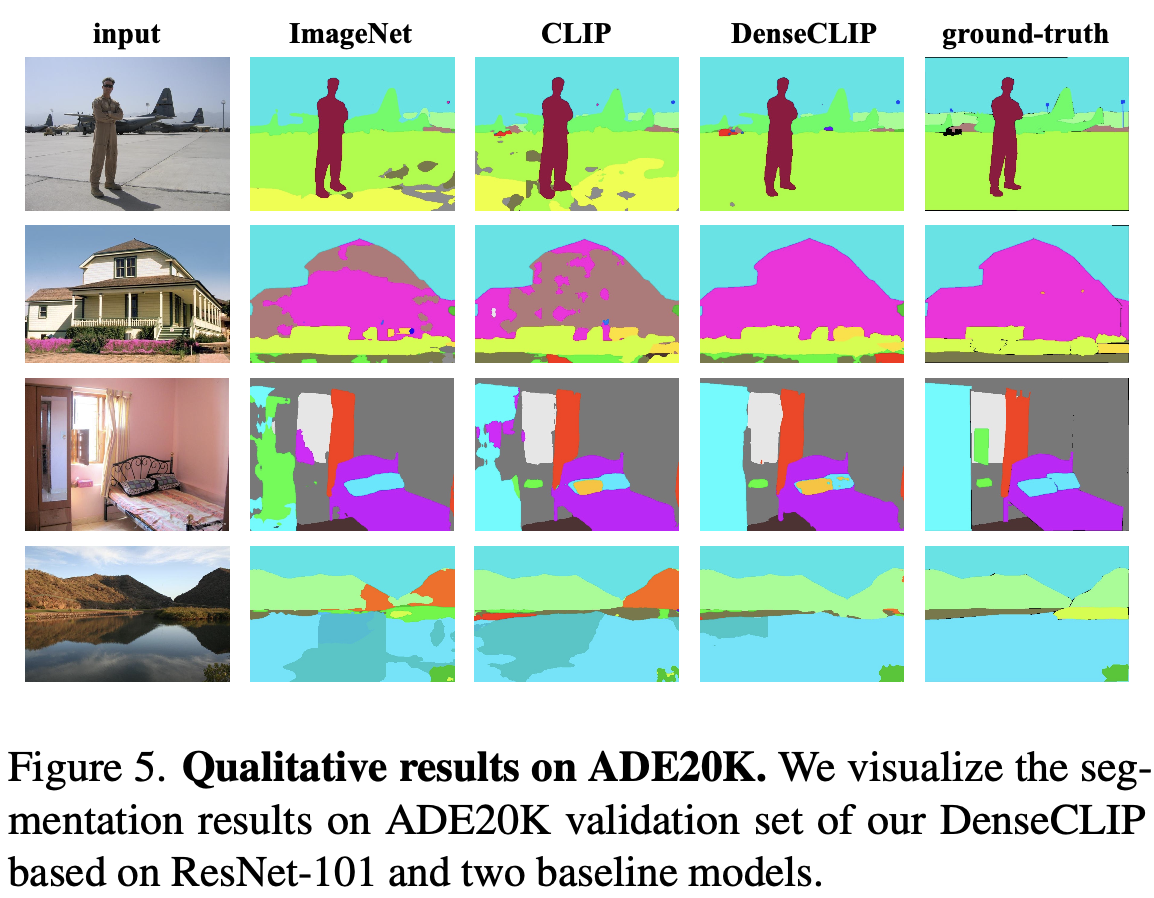[VLM][SS][OD] DenseCLIP: Language-Guided Dense Prediction with Context-Aware Prompting
[VLM][SS][OD] DenseCLIP: Language-Guided Dense Prediction with Context-Aware Prompting
- paper: https://arxiv.org/pdf/2112.01518.pdf
- github: https://github.com/raoyongming/DenseCLIP
- CVPR 2022 accepted (인용수: 322회, ‘24-02-26 기준)
- downstream task: OD, SS
1. Motivation
-
대량의 image-text pair (noisy) 를 contrastive learning으로 학습하는 것이 visual representation을 학습하는데 좋다고 알려짐
-
image-text pair 기반 학습기법을 pixel-text pair기반의 dense prediction task로 적용하는 연구가 되지 않았음
$\to$이를 진행해보자!
2. Contribution
-
upstream contrastive pre-training task와 downstream per-pixel prediction task의 gap을 줄여주는 denseCLIP을 제안함
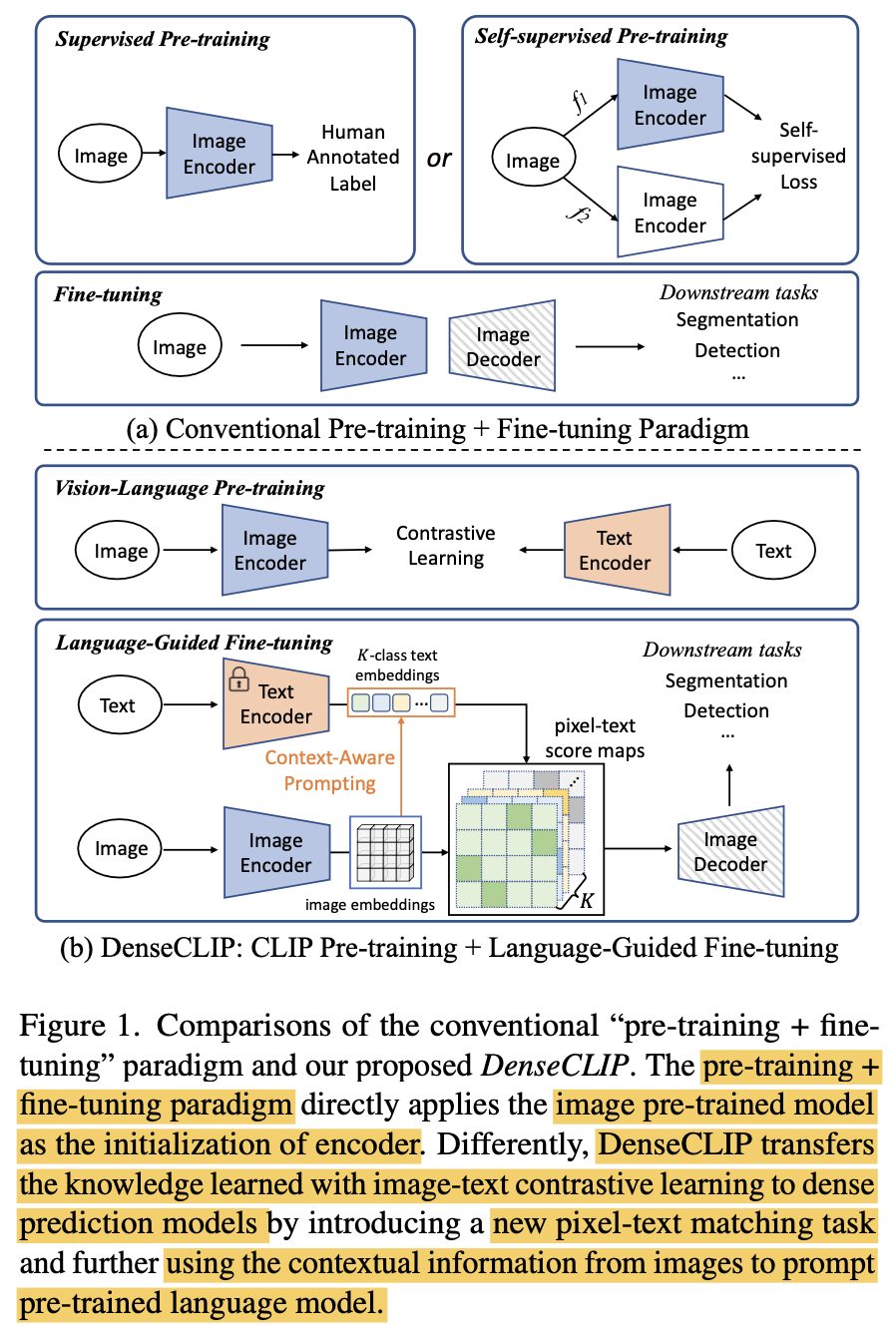
-
Hyperparameter tuning만으로 ImageNet 기반의 supervised learning pretraining보다 CLIP기반의 pretrained weight를 사용하여 성능 향상을 봄
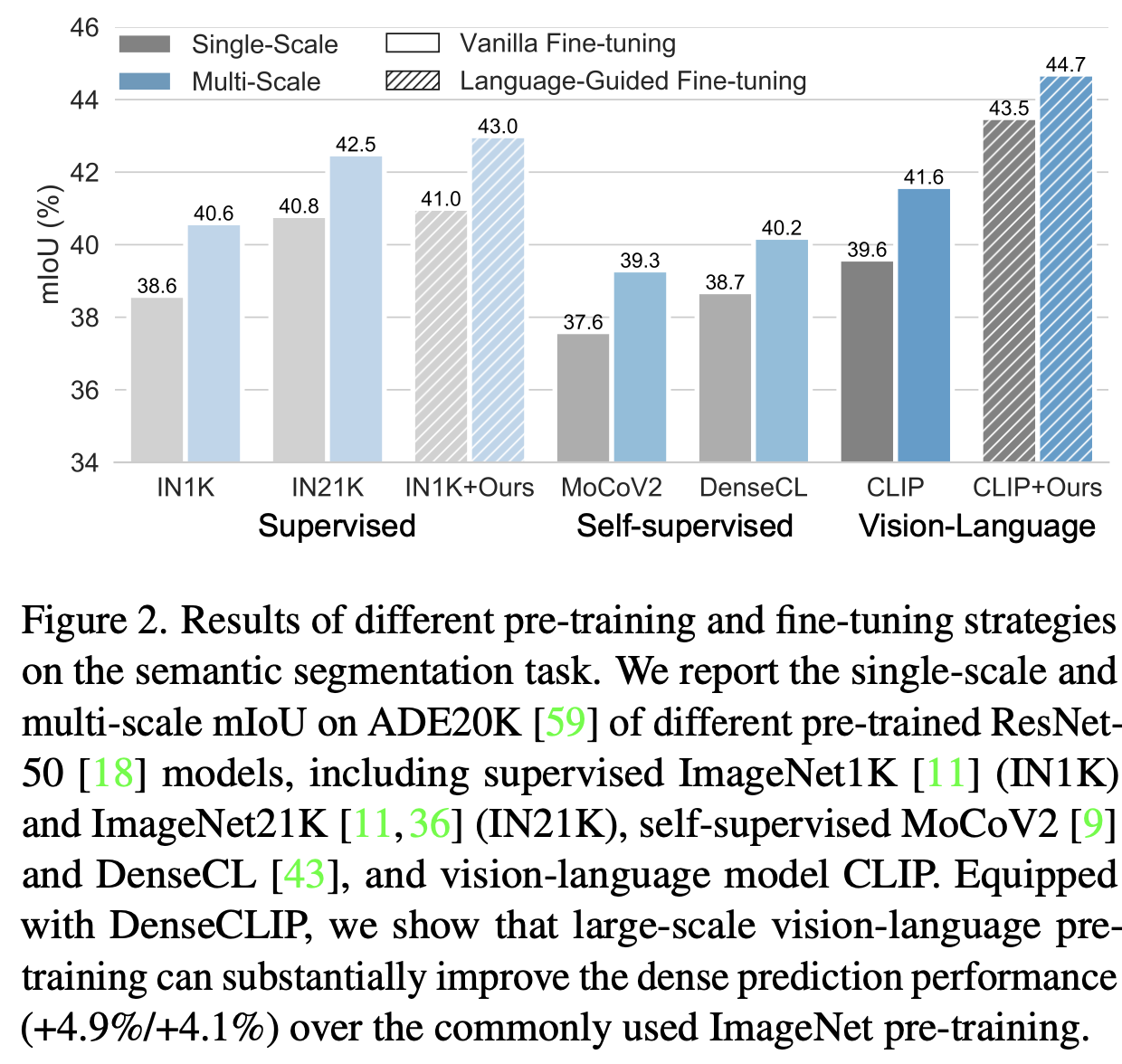
- image-to-prompt 정보를 Transformer module을 활용하여 (cross-attention) contextual 정보를 잘 추출함으로써 pre-trained knowledge를 잘 활용함
3. DenseCLIP
-
overall diagram
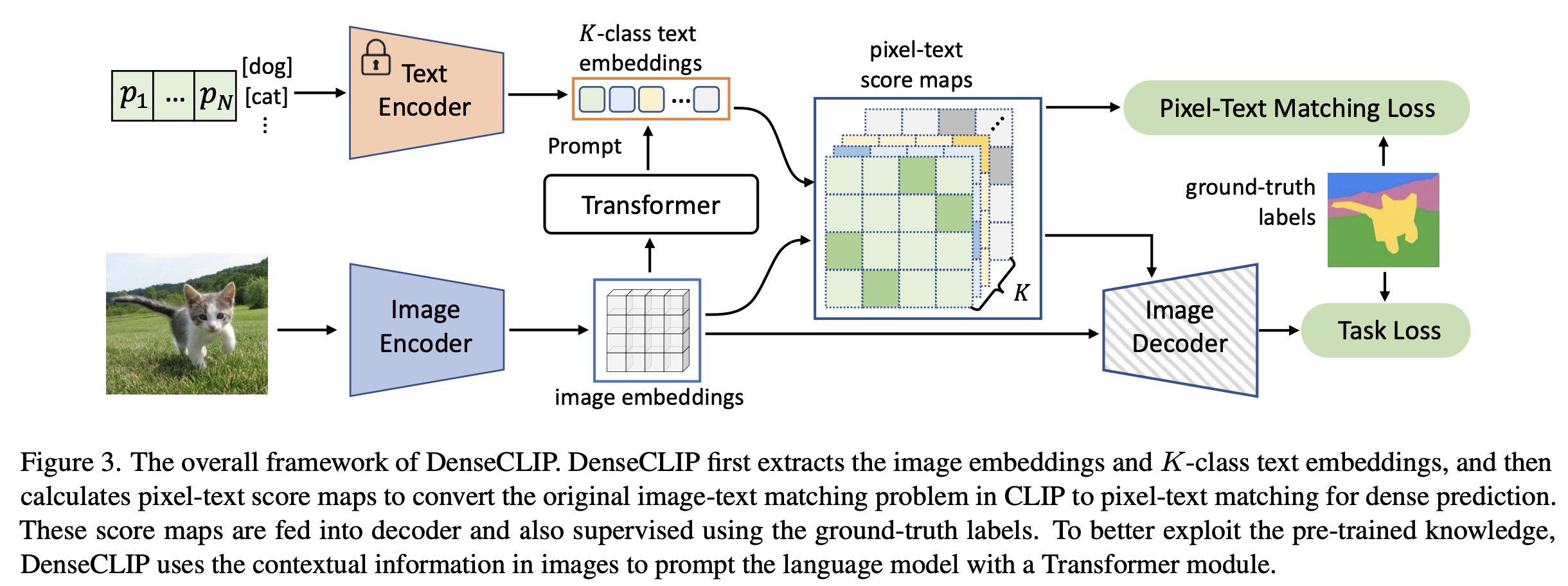
-
language compatible feature map


 : Global Averaged Pooling된 input feature
: Global Averaged Pooling된 input feature- $\bar{z}$: global feagture. 기존엔 이것만 사용함
- z: language compatible feature map
-
similarity score

-
t: text embedding $\in \mathbb{R}^{K \times C}$
- K: number of classes
- C: embedding vector dimension
-
이를 마지막 feature에 concat하여 사용 $\to$ language prior를 explicit하게 사용

-
-
Context-aware prompting
-
human-designed temple “a photo of [CLS]”이 아닌, CoOp처럼 learnable prompt를 활용

- p: learnable textual prompt,

- e: embedding for the k번째 class

- p: learnable textual prompt,
-
-
Vision-to-language prompting
-
Transformer decoder의 cross-attention에 착안하여, vision과 text feature간의 interaction을 강화시켜주고자 함
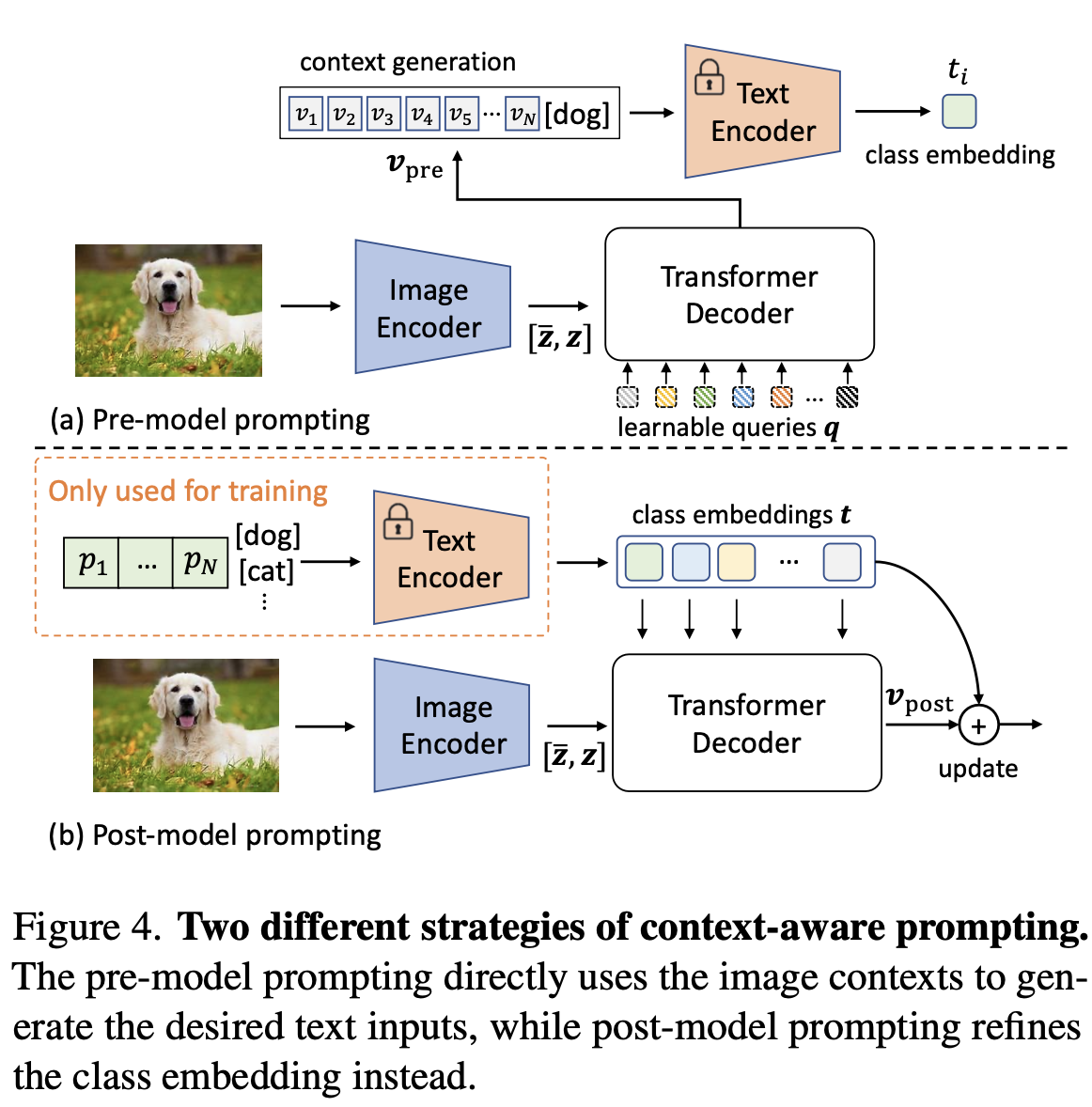
-
pre-model prompting: text encoder 통과 전 text에 visual feature output을 입력으로 넣어줌

-
q: learnable queries
-
z: language compatible feature map
-
$\bar{z}$: global feature
$\to$ text encoder를 통과시켜야 하므로, 비효율적이고 성능이 좋지 않아 사용하지 않음
-
-
post-model prompting: text encoder 통과한 text embedding을 visual encoder의 output에 넣어 Cross attention


-
$\gamma$: learnable parameter. 초기에 매우 작은 값으로 시작하여 text embedding 정보를 헤치지 않도록 설계

-
learned text embedding을 불러오기만 하면 되므로, post-model method을 최종 채택
-
-
Implementation
-
Semantic segmentation

- y: GT label

- locality를 빠르게 학습하기 위해 auxiliary loss를 매 layer마다 추가해줌
- y: GT label
-
Object Detection

-
-
-
4. Experiments
-
semantic segmentation
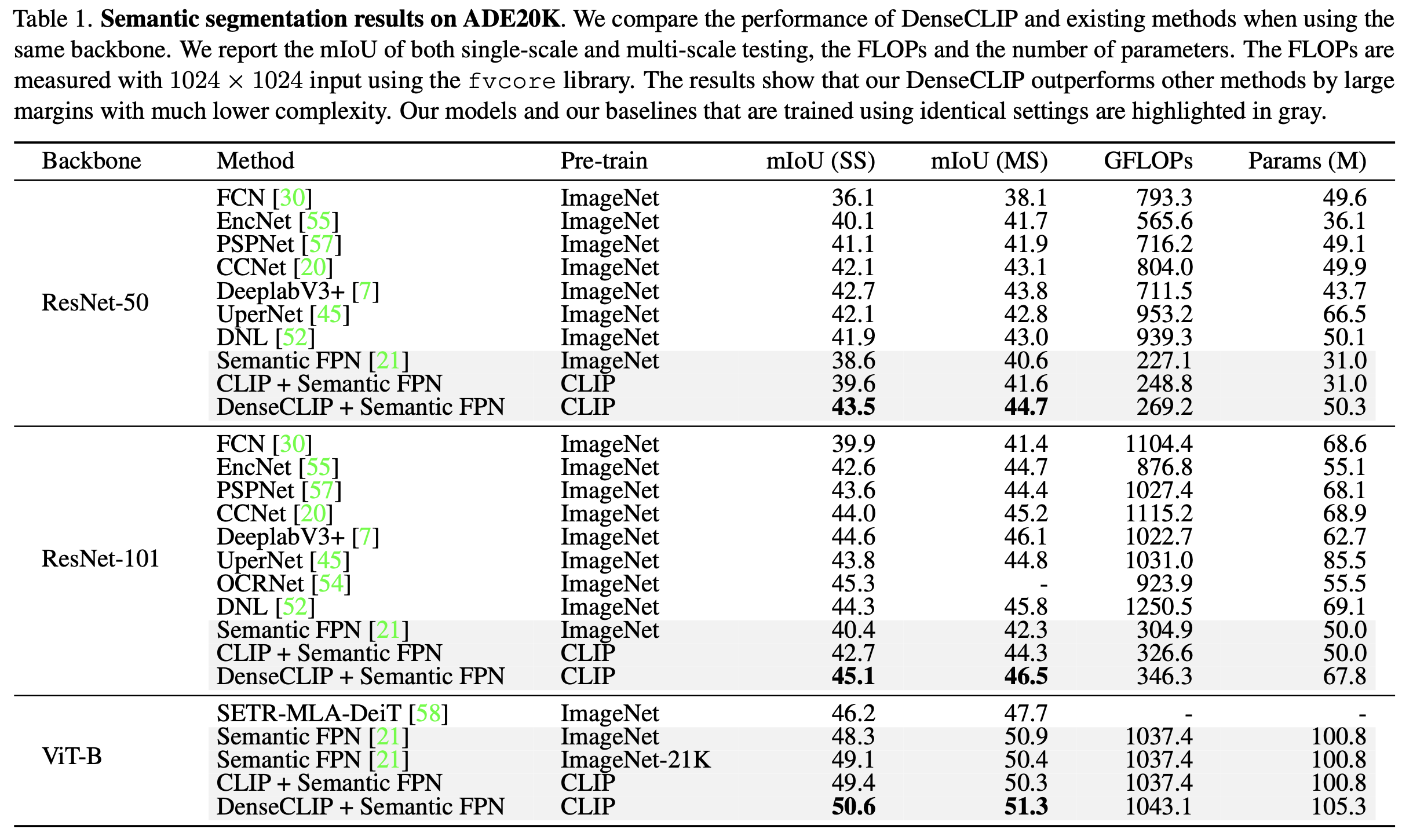
-
Ablation study
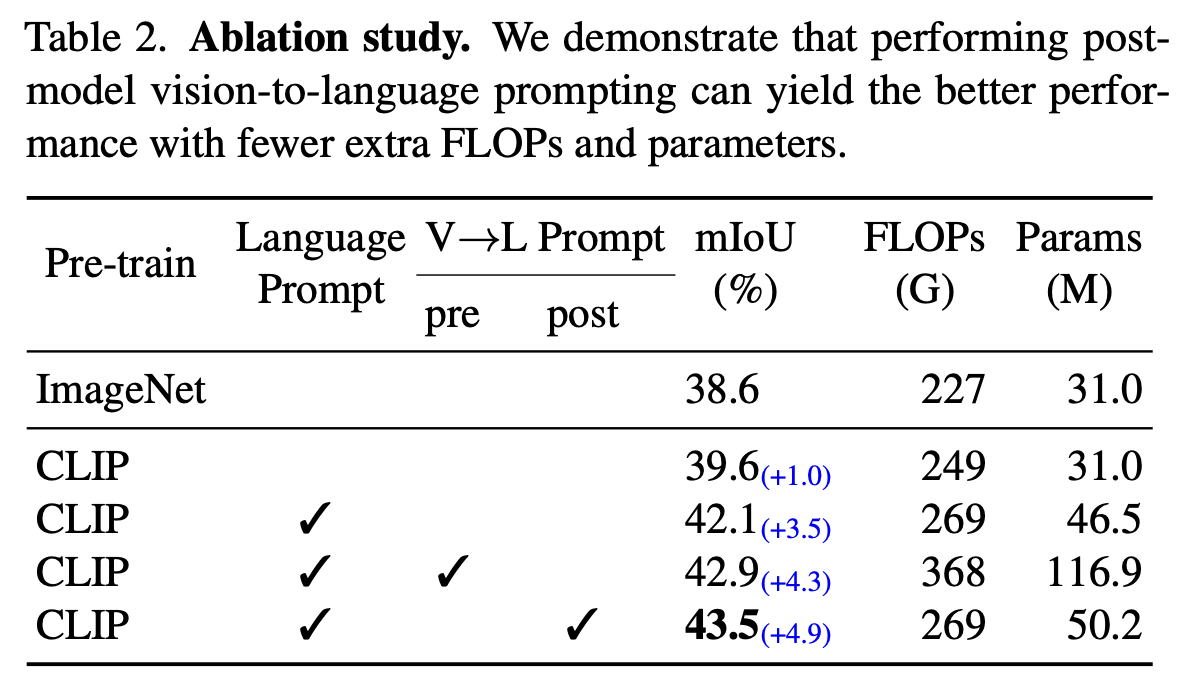
-
object detection
-
RetinaNet
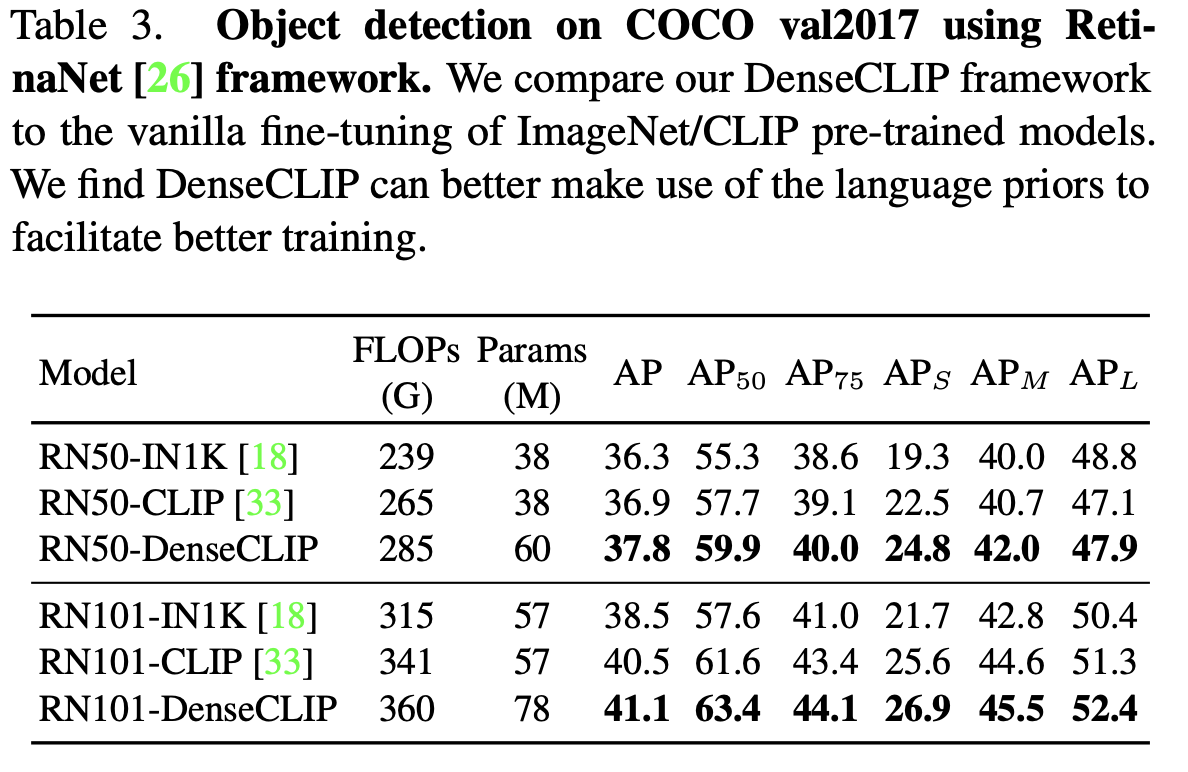
-
Mask-RCNN (+ Instance segmentation)

-
-
Apply to any backbone
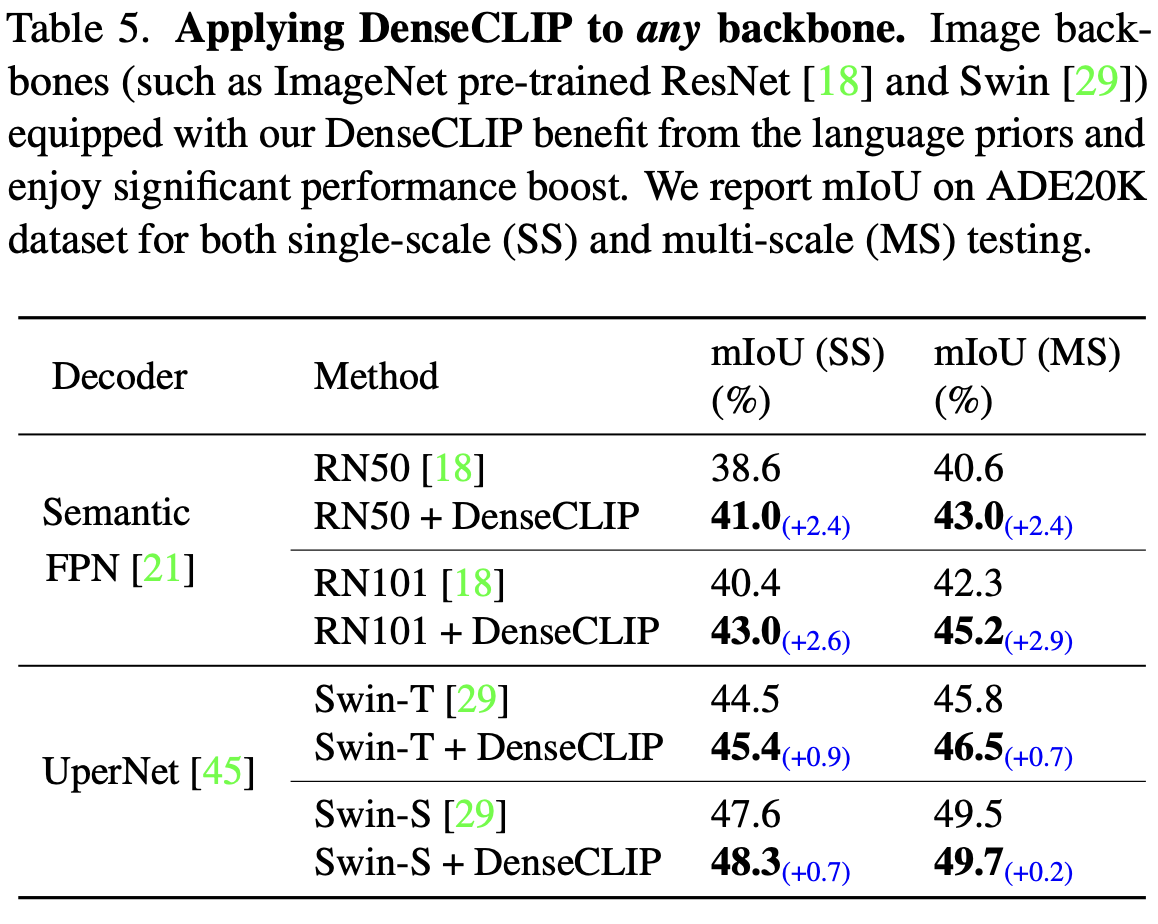
-
Qualtitative Result
